Supporting Community Action through the Thames Valley Police Community Fund
5/2/20253 min read
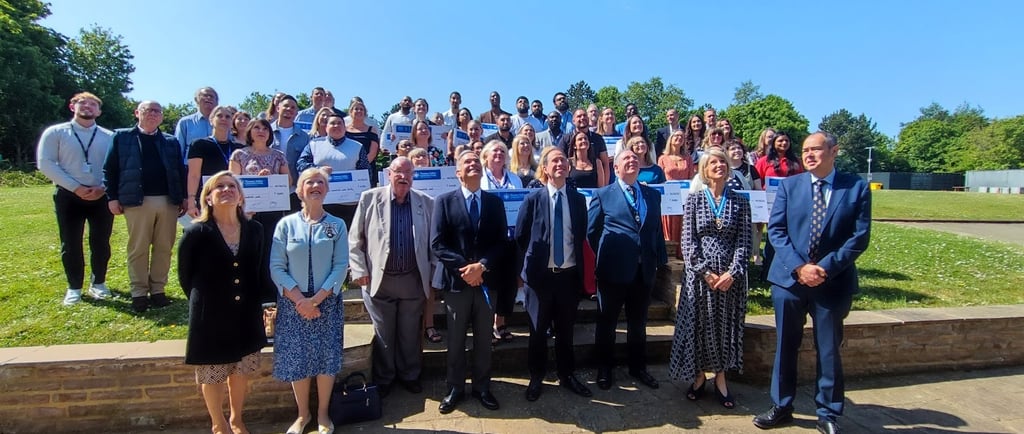

It's not often you can say that your morning coffee was paid for by a drugs baron. But today was that day. This morning, I had the privilege of attending the Thames Valley Police Community Fund presentation event—an inspiring occasion recognising grassroots organisations working tirelessly to make our communities safer, more resilient, and more compassionate. Funded through the sale of assets seized from criminals under the Proceeds of Crime Act, the Community Fund empowers local groups to take meaningful action on crime prevention, rehabilitation, and youth development. No part of today's proceedings were funded by the public purse - everything was covered by the fund, including the coffee.
As High Sheriff of Oxfordshire for 2025–2026, my theme for the year—“Hearing the Young Unheard”—focuses on listening to and supporting vulnerable young people, especially those at risk of crime, exclusion, and social marginalisation. The Community Fund is a powerful example of how early intervention, community support, and practical compassion can change lives.
This year’s awards recognised vital work being done across the Thames Valley, with grants presented to organisations in Oxfordshire, Buckinghamshire, and Berkshire.
Here in Oxfordshire, eight exceptional organisations received funding—all directly or indirectly contributing to the early intervention and support of those who are too often unheard:
Be Free Young Carers (£4,000)
Supporting teenagers with caring responsibilities, this grant helps run monthly support groups offering respite, peer connection, and protection from isolation and anti-social behaviour.Emmaus Oxford (£5,500)
Emmaus offers an alternative route out of homelessness, combining stable accommodation with meaningful work in social enterprise. This funding supports qualifications and employment opportunities for people rebuilding their lives.Homeless Oxfordshire (£4,500)
Focused on trauma-informed support for women experiencing homelessness, this funding supports domestic abuse training and the installation of CCTV at a women-only property.Homeless People and Oxford Churches (Gatehouse) (£5,000)
A safe and welcoming community space providing free, personalised casework support for people who are homeless, vulnerably housed or isolated.Response (£5,000)
A rehabilitation initiative for adults—including ex-offenders—struggling with mental health and substance misuse. The grant supports trauma-informed therapy and reintegration services.SOFEA (£10,000)
Supporting over 400 young people to date, SOFEA offers skills training and work experience through food larder projects. This grant funds a specialist mentor for students with emotional and behavioural needs.Unrebel Housing (£10,000)
Dedicated to breaking the cycle of reoffending, Unrebel Housing provides therapeutic housing and personalised support to ex-offenders. The funding helps cover staff costs delivering housing and recovery support.Youth Challenge Oxfordshire (£10,000)
This charity delivers an 18-month resilience-building programme for 13–21-year-olds, tackling mental health, bullying, social media pressure and peer influence. The grant supports programme delivery in partnership with Oxford United and Oxford Food Hub.
We also heard from two Oxfordshire organisations previously funded by the Community Fund, both doing vital work aligned with the theme of Hearing the Young Unheard:
Trax (Oxfordshire Motor Project)
Glen shared the ethos and impact of Trax, which provides long-term alternative education for young people aged 11–25 who are no longer able to attend mainstream school—often due to trauma, behavioural needs or complex social backgrounds. Many have Education, Health and Care Plans (EHCPs), and some stay with Trax for several years.What sets Trax apart is its philosophy, grounded in trust and individual potential. The team begins by asking each young person: “What does ‘good’ look like for you?” and then helps them work towards that goal. There is zero tolerance for bullying or criminality, and no rigid structure based on age or timetable—only progress at a pace and style that matches each learner's ability and interest. Students earn house points, take on responsibilities early, and are met with consistent care and encouragement. It’s a model of trauma-informed, relational education that gives young people the second (or third) chance they deserve.
Didcot TRAIN
Georgie from TRAIN spoke about the outcomes of a previously funded programme working with young people at risk of exclusion and anti-social behaviour. Six young people completed the programme; three have not been suspended since, and others were successfully referred for further support—including to young carers’ services, alternative provision, or family help. Four have had no further ASB reports in the community. The programme remains in delivery, with additional outcomes anticipated.
These stories are more than statistics—they are lived proof that young lives can change when we listen, invest, and walk alongside them.
Though the awards celebrated work across all three counties, the Oxfordshire projects in particular resonate with my focus on early intervention, vulnerability, and giving voice to those too often overlooked. Each project reminds us that the most effective way to build safer communities is not to wait for problems to escalate, but to act early, compassionately, and locally.
It was an honour to meet so many people working at the front line of community transformation. My thanks to the Thames Valley Police and Crime Commissioner and the Community Fund team for their commitment to community-led solutions.
As High Sheriff, I will continue to amplify the voices of the young unheard and shine a light on those who stand beside them—offering not just hope, but action.
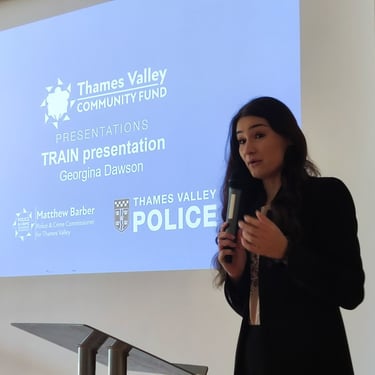
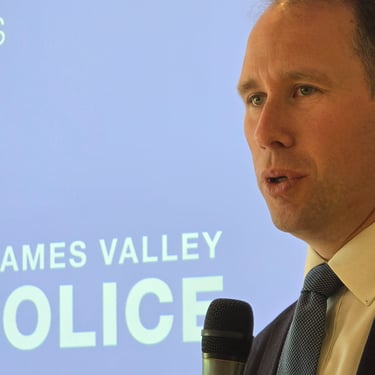
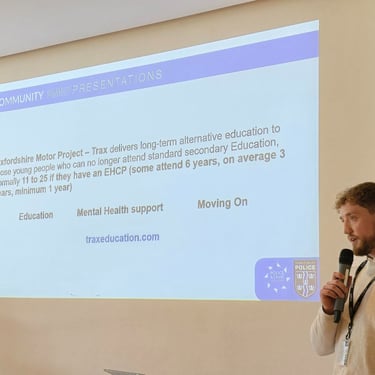
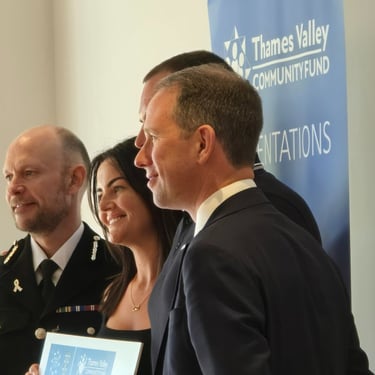

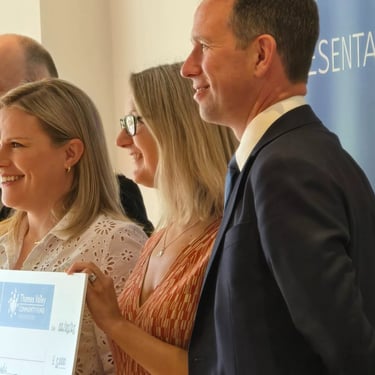
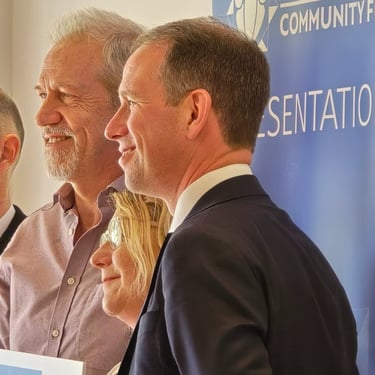
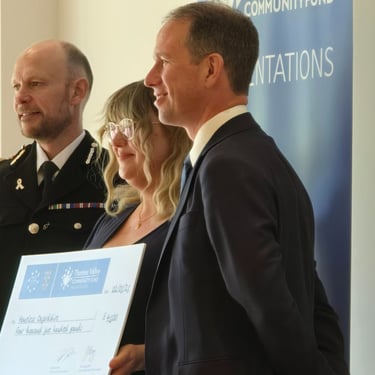
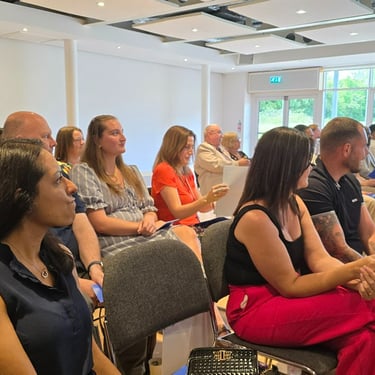
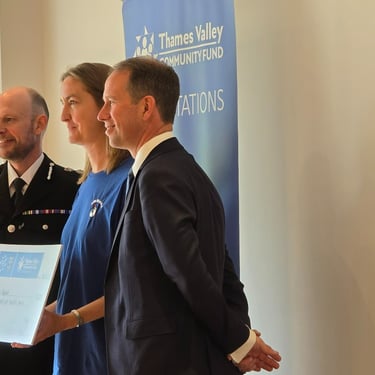
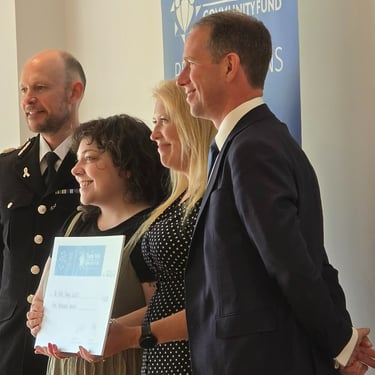
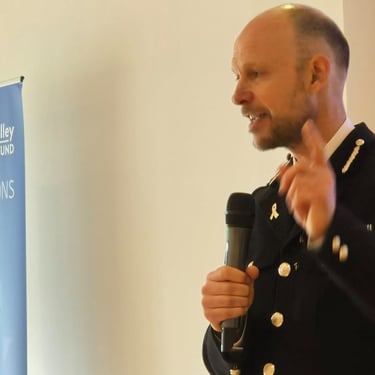
The Oxfordshire Shrievalty
Championing justice and community across Oxfordshire
© 2026. All rights reserved.
